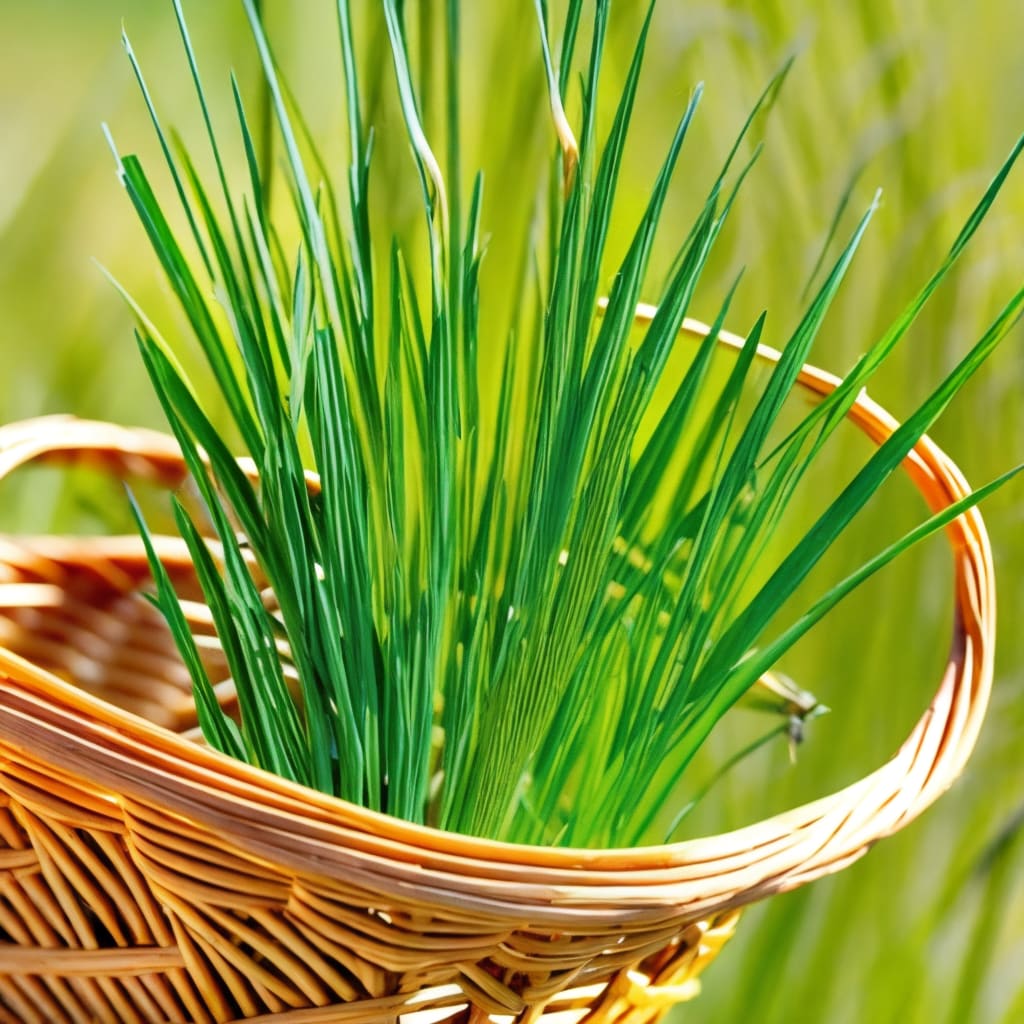
Section 1: Introduction
Citronella Grass, scientifically known as Cymbopogon nardus, is a popular backyard plant renowned for its aromatic properties and versatile uses. This article explores the various aspects of Citronella Grass, including its introduction, nutritional values, health benefits, culinary versatility, its role in cuisines worldwide, and concludes with its significance in enhancing our lives.
Section 2: Nutritional Values and Health Benefits
While Citronella Grass is primarily known for its fragrance and insect-repellent properties, it also offers certain nutritional values and potential health benefits. Although it is not typically consumed as a primary food source, Citronella Grass contains small amounts of vitamins and minerals. Additionally, the essential oil derived from the grass possesses certain medicinal properties, including antimicrobial and anti-inflammatory effects, which may have potential health benefits when used in aromatherapy or topical applications.
Citronella Grass (Cymbopogon nardus) is not only known for its captivating aroma and insect-repellent properties but also offers certain nutritional values and potential health benefits. This section delves into the nutritional profile of Citronella Grass and explores its potential contributions to our well-being.
Essential Nutrients:
Although Citronella Grass is primarily used for its aromatic qualities rather than as a dietary staple, it does contain trace amounts of certain vitamins and minerals. These include vitamin C, vitamin B6, iron, potassium, and magnesium. While the quantities may be modest, these nutrients play essential roles in supporting overall health and vitality.
Aromatherapy and Relaxation:
One of the most well-known uses of Citronella Grass is in aromatherapy. The essential oil derived from the grass is often used in diffusers or as a massage oil to promote relaxation and alleviate stress. Inhaling the citrusy scent of Citronella Grass oil may help create a calming atmosphere, which can aid in reducing anxiety and enhancing mental well-being.
Antimicrobial Properties:
Citronella Grass possesses natural antimicrobial properties, making it a potential ally in combating certain pathogens. The essential oil extracted from the grass contains compounds that have been found to exhibit antimicrobial activity against various bacteria and fungi. While further research is needed, these properties suggest that Citronella Grass may have applications in natural remedies and personal care products.
Anti-inflammatory Potential:
Certain studies suggest that Citronella Grass may possess anti-inflammatory properties. Inflammation is a natural response by the body, but chronic inflammation can contribute to the development of various diseases. Preliminary research indicates that certain compounds found in Citronella Grass, such as citronellal and geraniol, exhibit anti-inflammatory effects. However, more studies are necessary to fully understand the extent and mechanisms of these potential benefits.
Skin Care Applications:
Citronella Grass is often used in skincare products due to its potential skin-enhancing properties. The essential oil derived from the grass may possess antifungal and antibacterial properties, making it useful in addressing certain skin conditions. Additionally, the oil's refreshing scent is sometimes used in natural perfumes and soaps.
While Citronella Grass is primarily renowned for its aroma and insect-repellent qualities, its nutritional values and potential health benefits should not be overlooked. Whether through aromatherapy, antimicrobial properties, or potential anti-inflammatory effects, Citronella Grass presents a range of possibilities for supporting overall well-being and enhancing certain skincare applications.
Citronella Grass, with its delightful aroma and versatile applications, goes beyond its reputation as an insect repellent. While it may not be a significant source of macronutrients, it offers trace amounts of vitamins and minerals. Furthermore, Citronella Grass holds potential for aromatherapy, relaxation, antimicrobial effects, anti-inflammatory properties, and skincare applications. Embracing the multifaceted qualities of Citronella Grass allows us to explore its potential contributions to our health and well-being, making it a valuable addition to any backyard or garden.
Section 3: Culinary Versatility
Citronella Grass can add a unique citrusy flavor and aroma to various culinary creations. It is often used as a flavoring agent in Asian cuisine, particularly in Thai, Indonesian, and Malaysian dishes. The tender parts of the grass, such as the lower white portion of the stalk, are finely chopped or crushed and added to soups, curries, stir-fries, and marinades. Citronella Grass imparts a refreshing and lemony essence, enhancing the overall taste and fragrance of the dishes.
Furthermore, the grass can be used to infuse beverages like teas, lemonades, and cocktails, providing a zesty twist to the drinks. It can also be utilized to make aromatic syrups and extracts that can be used in various desserts, including ice creams, sorbets, and baked goods.
Citronella Grass (Cymbopogon nardus) not only delights the senses with its aromatic qualities but also offers a unique citrusy flavor that lends itself to various culinary creations. This section unveils the culinary versatility of Citronella Grass, showcasing its ability to enhance dishes and infuse them with a refreshing twist.
Flavorful Infusions:
Citronella Grass is commonly used in Asian cuisines to infuse dishes with its distinctive flavor. The lower white portion of the stalk is finely chopped or crushed to release its citrusy aroma and tangy taste. This grass is frequently employed in Thai, Indonesian, and Vietnamese cuisines, adding depth to soups, curries, stir-fries, and marinades.
Aromatic Broths and Soups:
In Thai cuisine, Citronella Grass, known as "takrai" or "lemongrass," is a key ingredient in traditional dishes like Tom Yum soup. The grass infuses the broth with its unique flavor, resulting in a fragrant and tangy soup that is both refreshing and comforting. Citronella Grass can also be used to enhance the flavor of other broths and stocks, bringing a citrusy note to the culinary repertoire.
Flavorful Marinades and Dressings:
The citrusy profile of Citronella Grass makes it an excellent choice for marinades and dressings. Combine finely chopped or crushed Citronella Grass with other ingredients such as garlic, ginger, chili, and soy sauce to create a flavorful marinade for meats, poultry, or seafood. It can also be incorporated into dressings for salads or used as a dipping sauce to add a zesty kick.
Exotic Stir-Fries and Curries:
Citronella Grass imparts a delightful aroma and tangy flavor to stir-fries and curries, making them truly memorable. In Indonesian cuisine, it is used in dishes like Nasi Goreng (Indonesian fried rice) and Rendang (spicy beef stew), infusing them with a unique citrusy undertone. Incorporating Citronella Grass into stir-fried vegetables or curries adds a refreshing element that balances well with other spices and ingredients.
Aromatic Beverages and Desserts:
Citronella Grass can also be used to infuse beverages and desserts with its vibrant flavor. Steeping the grass in hot water creates a refreshing tea that can be enjoyed hot or iced. It can also be used to infuse lemonades, mocktails, or even cocktails, providing a citrusy twist.
Additionally, Citronella Grass can lend its unique flavor to desserts, such as sorbets, ice creams, and baked goods. Its distinct citrusy notes add a refreshing element to sweet treats, offering a delightful balance of flavors.
By exploring the culinary versatility of Citronella Grass, one can unlock a range of exciting flavors and create dishes that are truly exceptional.
Citronella Grass, with its aromatic charm and citrusy flavor, brings a touch of culinary excitement to the table. Its versatile nature allows it to enhance a variety of dishes, from soups and curries to marinades, dressings, and even desserts. By incorporating Citronella Grass into our culinary adventures, we can elevate the taste profiles of our favorite recipes and embark on a culinary journey filled with vibrant flavors and aromatic delights.
Note: While Citronella Grass is generally considered safe for culinary use, it is important to use it in moderation and remove the tough outer layers before consumption. It is always advisable to source Citronella Grass from reputable sources and ensure it is free from pesticides or other contaminants.
Section 4: World of Cuisine
Citronella Grass plays a prominent role in the cuisines of several Asian countries. In Thai cuisine, it is a key ingredient in popular dishes like Tom Yum soup and Thai curry pastes, contributing to their distinct flavor profiles. Indonesian cuisine incorporates Citronella Grass in traditional dishes like Soto Ayam (Indonesian chicken soup) and Nasi Uduk (fragrant coconut rice). Malaysian cuisine also features this grass in dishes such as Rendang and Satay, adding depth and aroma to the preparations.
Section 5: Conclusion
Citronella Grass, with its aromatic allure and diverse applications, is a valuable addition to any backyard or garden. Apart from its insect-repellent properties, it offers a range of benefits in terms of culinary versatility and potential health advantages. Whether used to enhance the flavors of savory dishes, infuse beverages, or add a fragrant touch to desserts, Citronella Grass brings a unique sensory experience to our culinary endeavors.
Beyond the kitchen, Citronella Grass holds cultural significance in various cuisines worldwide, enriching the gastronomic heritage of Asian culinary traditions. Embracing the aromatic wonders of Citronella Grass in our gardens and kitchens allows us to explore new tastes, scents, and culinary delights that can elevate our overall dining experiences.
Note: This article provides general information about the potential nutritional values and health benefits of Citronella Grass. It is important to consult with a healthcare professional or aromatherapist before using Citronella Grass or its essential oil for any specific health concerns or conditions.





Comments
Pabalatak is not accepting comments at the moment
Want to show your support? Send them a one-off tip.